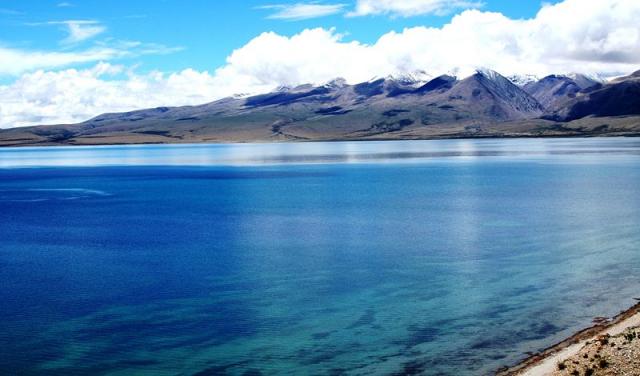
Mansarovar is a fresh-water lake in Tibet 2,000 km from Lhasa. To the west of Lake Manasarovar is Lake Rakshastal and towards the north is Mount Kailash. Manasarovar Lake lies at 4,556 m above mean sea level. It is the highest fresh-water lake in the world
Lake Manasarovar is relatively round in shape. The circumference of Manasarovar is 88 km, depth is 90 m and it occupies a total area of 320 km. The lake freezes in winter and melts only in the spring.
Like Mount Kailash, Lake Mansarovar is a place of pilgrimage, attracting religious people from India, Tibet and the neighboring countries. Bathing in the Manasa Sarovar and drinking its water is believed to cleanse all sins. Pilgrimage tours are organized regularly, especially from India, the most famous of which is the Kailash Mansarovar Yatra which takes place every year. Pilgrims come to take ceremonial bathes in the cleansing waters of the lake.
According to Hindu religion, the lake was first created in the mind of the Lord Brahma.] Hence, in Sanskrit it is called "Manasarovar", which is a combination of the words Manas (mind) and Sarovar (lake). The lake, in Hindu mythology, is also supposed to be the summer abode of swans, who are considered as very wise and sacred birds. It is also believed the Devas descend to bathe in the lake between 3 and 5 am the time of the day known as Brahma Muhurta. Buddhists also associate the lake to the legendary lake known as Anavatapta in Sanskrit and Anotatta in Pali, where Queen Maya is believed to have conceived Buddha. The lake has a few monasteries on its shores. The most notable of which is the ancient Chiu Gompa Monastery, which has been built right onto a steep hill. It looks as if it has been carved right out of the rock.

Leave Your Comments